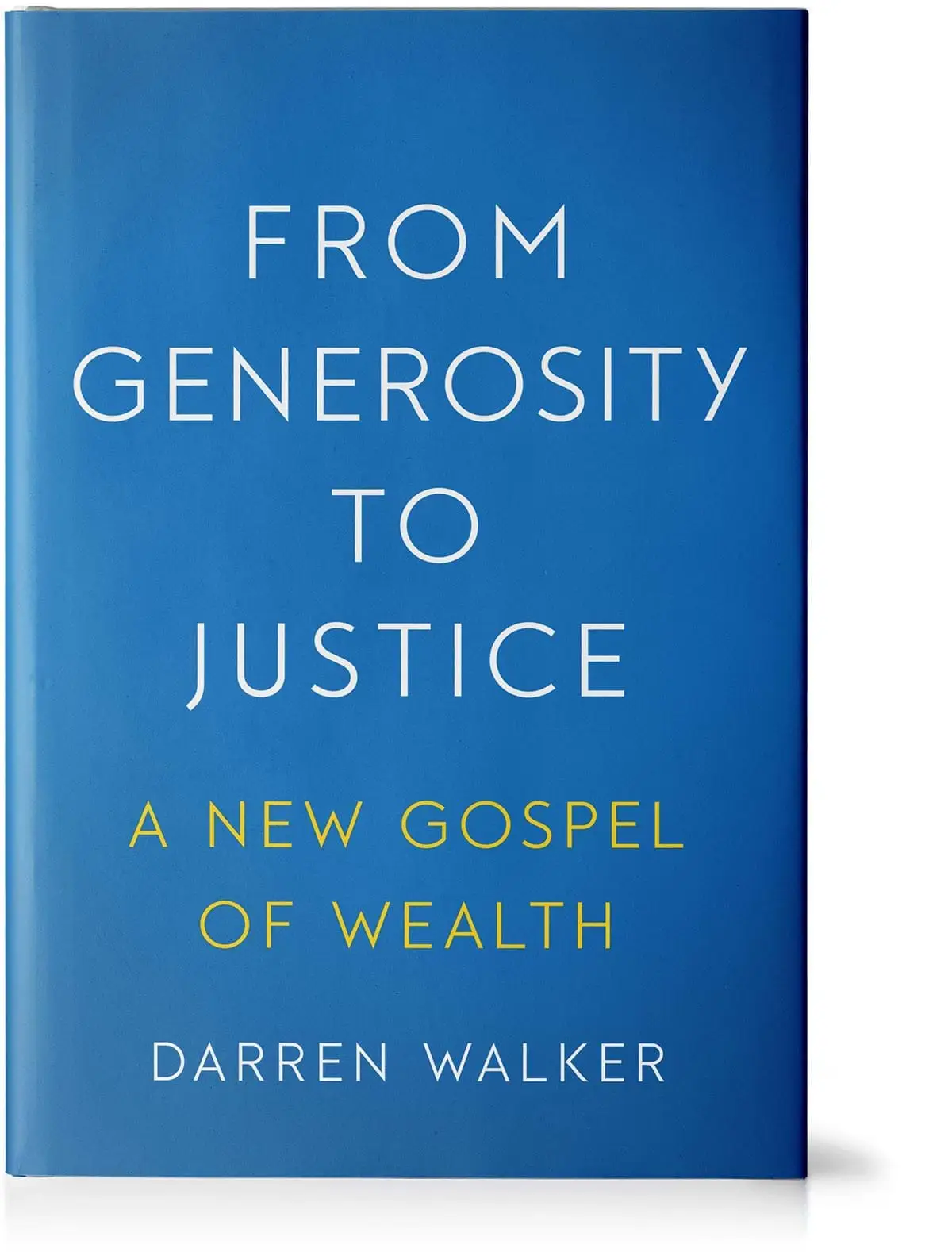
From Generosity to Justice
From Generosity to Justice: A New Gospel of Wealth is available from the following retailers:
We are on a journey to shift the very foundations of philanthropy—to inspire transformative approaches to giving that can truly disrupt the staggering inequality taking over our planet. Fortunately, we are not alone.

About the Book
In From Generosity to Justice: A New Gospel of Wealth, Darren Walker, president of the Ford Foundation articulates a bold vision for philanthropy in the 21st century joined by an array of thinkers, activists, and leaders from every field, sector, and walk of life.
Drawing inspiration from Andrew Carnegie’s original “The Gospel of Wealth,” Dr. Martin Luther King Jr.’s incisive insights on philanthropy, and writer and critic Anand Giridharadas’s probing distinction between generosity and justice, this New Gospel convenes some of the most important voices in philanthropy to ask and offer answers to a vital question: If there’s a continuum between generosity and justice, how do we push our work closer to the latter?
Now is the time for a new Gospel of Wealth.
With contributions from Laurene Powell Jobs, Ai-jen Poo, Kenneth Frazier, Carly Hare, Elizabeth Alexander, and more, Walker challenges and emboldens readers to consider philanthropy as a tool for achieving economic, social, and political justice.
That task requires humility, moral courage, and an unwavering commitment to democratic values and institutions. It demands that all members of society recognize their privilege and position, address the root causes of social ills, and seek out and listen to those who live amid and experience injustice.
What began in Carnegie’s day as a manual for generosity is now reimagined as a guide to move us closer to justice—a guide to help each of us find a way to contribute.
Justice is calling. It’s time we answer.
Discussion about #GenerosityToJustice

Ai-Jen Poo
National Domestic Workers Alliance
“Charity is like a Band-Aid. It’s getting you the resources to address an injury, but not actually getting at the reason for the injuries to begin with.”

Laura Arrillaga-Andreessen
Founder and president of the Laura Arrillaga-Andreessen Foundation
“Charity is about helping people survive. Justice is about helping people thrive.”

Carly Hare
Coalition Director of Change Philanthropy
“When we try to find other people’s solutions, we inevitably cause new problems. Our intent and our impact are simply misaligned. That’s why we have to be mindful to engage with the community. That’s the difference between approaching philanthropy from a charity mindset and approaching it with a justice mindset.”

Strive Masiyiwa
Founder and Chairman of Econet Wireless Group
“One of the things that I began to realize over the past 15 years is that you have to make your life philanthropy, in the sense that the greatest philanthropy doesn’t always involve money. In fact, when all you can use is money, you see its incredible limitations.”

Laurene Powell Jobs
Founder of Emerson Collective
“Justice in philanthropy looks like philanthropy to me—I don’t separate the two.”

Connie Ballmer
Co-Founder of the Ballmer Group
“Justice goes beyond charity, which might be equated with donation. Justice goes beyond donations in an effort to create a broader, systemic change.”

Elizabeth Alexander
President of The Andrew W. Mellon Foundation
“When we think about George Soros or Henry Ford or Andrew W. Mellon, they all amassed their wealth in different ways and they all have very different stories. But at the end of the day, the result is still an excess of wealth in one place. What we know is that there can’t be an excess in one place if there’s not a need in another place. So, I think, at the heart of philanthropy, there are inherently ideas about what wealth redistribution looks like.”

Jeff Raikes
Co-Founder of the Raikes Foundation
“If I were to offer a piece of advice to other philanthropists, it would be to get, and understand, and make visible their own privilege—and to deal with their privilege so that they can be more self-aware in the aspirations they have for their philanthropy. If you don’t get comfortable with the idea that privilege is typically invisible to those of us who possess it, you’re not nearly as well equipped to make a difference for society.”